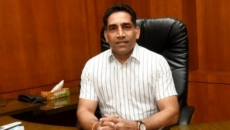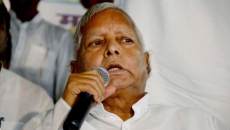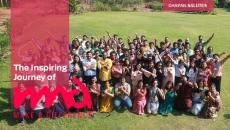Brasilia, March 27 (IANS) India on Wednesday commended the continuity in the G20 multi-year agenda for creating quality employment and gender equality in the workplace at the Employment Working Group (EWG) meeting under the Brazilian Presidency.
India as a member of the G20 Troika, is co-chairing the two-day EWG meeting, along with Brazil and South Africa.
India’s representative Sumita Dawra noted that the priority areas of the 2nd EWG at Brasilia align with the priority areas and outcomes of previous G20 presidencies including the Indian presidency.
On the first day of the meeting, deliberations were held on the over-arching theme of promotion of gender equality and promoting diversity in the workplace. The Indian delegation emphasised the need for creating inclusive environments by ensuring equal representation and empowerment for all, irrespective of race, gender, ethnicity, or socio-economic background.
The focus areas for the 2nd EWG meeting are (i) creating quality employment and promoting decent labour; (ii) addressing a just transition amidst digital and energy transformations; (iii) leveraging technologies to enhance the quality of life for all; (iv) the emphasis on gender equity and promoting diversity in the world of employment for inclusivity, driving innovation and growth.
In this context, the Indian delegation elucidated significant strides taken by India in the promotion of gender equality in the workplace and beyond and steps taken for migrant workers.
India’s achievements that were highlighted on the first day of the meeting include the increase in female labour force participation.
India has enacted the Occupational Safety Health and Working Conditions Code, 2020 which entitles women to be employed in all establishments for all types of work with their consent at night time. This provision has already been implemented in underground mines.
In 2017, the government amended the Maternity Benefit Act of 1961, which increased the ‘maternity leave with pay protection’ from 12 weeks to 26 weeks for all women working in establishments employing 10 or more workers. This is expected to reduce the motherhood pay gap among the working mothers.
To aid migrant workers, India’s innovative policy 'One Nation, One Ration Card' allows migrants to access their entitled food grains from anywhere in the Public Distribution System network in the country.
We have also implemented multiple schemes to provide social security and welfare benefits while ensuring portability across states. These schemes provide for affordable housing, enhanced employability through skill development and old-age pensions to such workers.
Dawra also mentioned India’s landmark step in fostering inclusion in the workforce is the e-Shram portal, launched to create a national database of unorganised workers, especially migrant and construction workers.
This initiative, providing the e-Shram card, enables access to benefits under various social security schemes.
The portal allows an unorganised worker to register himself or herself on the portal on a self-declaration basis, under 400 occupations in 30 broad occupation sectors.
More than 290 million unorganised workers have been registered on this portal so far.






